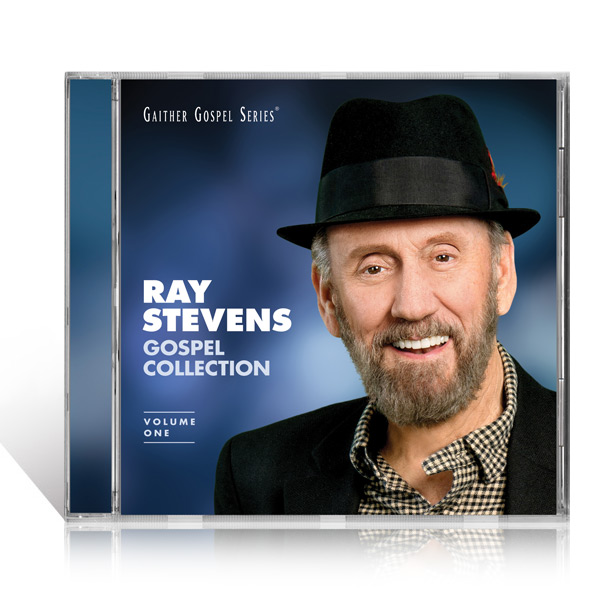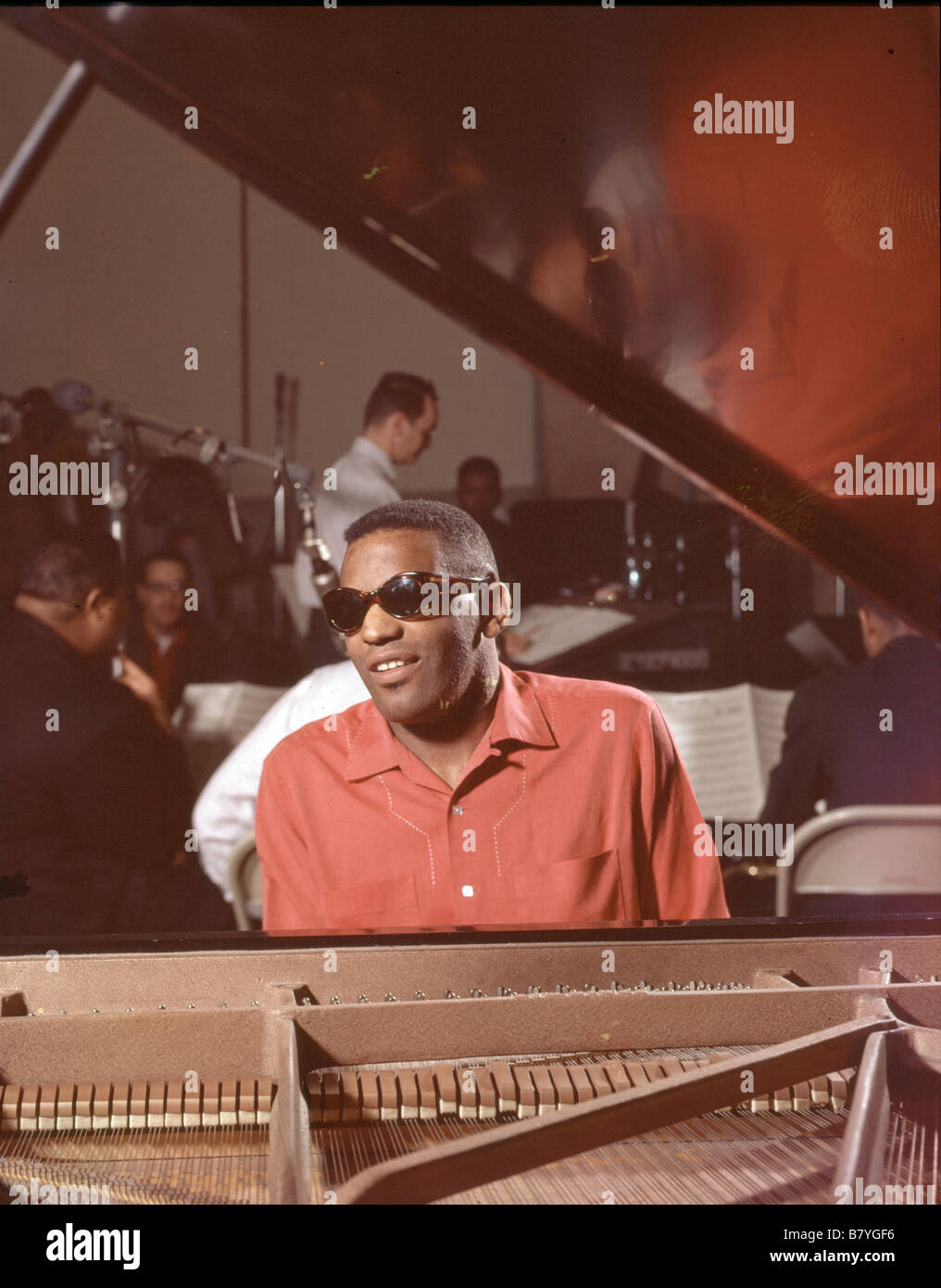There’s something magical about Ray Charles when it comes to gospel music. His voice is like a warm embrace, carrying the weight of soul, passion, and divine inspiration. Gospel Ray Charles isn’t just a phase in his career; it’s a testament to his ability to connect with the human spirit on a deeper level. Whether you’re a fan of his bluesy tunes or his soulful gospel anthems, there’s no denying the impact he left on the music world. This article dives deep into the gospel side of Ray Charles, exploring his journey, legacy, and influence on the genre.
When you think of gospel music, Ray Charles might not be the first name that comes to mind. But trust me, his contributions to gospel are as significant as his legendary status in the world of R&B and soul. The man didn’t just sing; he felt every note, every lyric, every beat. His gospel music was a reflection of his faith, struggles, and triumphs, making it resonate with listeners from all walks of life.
This article isn’t just about Ray Charles’ gospel music; it’s about understanding the man behind the music. From his early days in the church choir to his groundbreaking performances, we’ll explore how gospel shaped his career and how his career reshaped gospel. So buckle up, and let’s take a trip down memory lane with one of the greatest musicians the world has ever seen.
Read also:Alexandra Musk The Rising Star In The World Of Innovation And Sustainability
Table of Contents
- Biography: The Life of Ray Charles
- Ray Charles' Gospel Beginnings
- Influence on Gospel Music
- Album Highlights: Gospel Hits
- Live Performances: Gospel Ray Charles
- Legacy: Gospel Ray Charles
- Awards and Recognition
- Challenges Faced in Gospel Music
- Collaborations with Gospel Artists
- Fan Reactions to Gospel Ray Charles
Biography: The Life of Ray Charles
Early Life and Background
Before we dive into Ray Charles’ gospel music, let’s take a moment to appreciate the man himself. Born Ray Charles Robinson on September 23, 1930, in Albany, Georgia, his life was anything but ordinary. Growing up in a poor family, Ray faced challenges that would shape his music and his outlook on life. By the age of seven, he had lost his sight due to glaucoma, but that didn’t stop him from pursuing his dreams.
His early exposure to music came from the local church choir, where he developed a love for gospel music. This foundation would later influence his unique style, blending gospel with blues, jazz, and R&B. Ray’s journey wasn’t just about overcoming physical limitations; it was about finding his voice in a world that often doubted him.
Key Achievements
Throughout his career, Ray Charles achieved milestones that few could ever dream of. He was one of the first African-American artists to gain creative control over his music, paving the way for future generations. His influence extended beyond music, as he became a symbol of resilience and creativity. Some of his most iconic gospel songs, such as "I Believe to My Soul" and "Jesus Is All the World to Me," remain timeless classics.
Let’s take a look at some key moments in Ray Charles’ life:
- 1950s: Ray Charles begins experimenting with gospel influences in his music, creating a unique sound that blends R&B and gospel.
- 1962: Releases the gospel album "The Great Ray Charles," which features his take on traditional gospel songs.
- 1986: Inducted into the Rock and Roll Hall of Fame, recognizing his impact on popular music.
| Personal Information | Details |
|---|---|
| Full Name | Ray Charles Robinson |
| Date of Birth | September 23, 1930 |
| Place of Birth | Albany, Georgia |
| Occupation | Singer, Pianist, Songwriter |
Ray Charles' Gospel Beginnings
Ray Charles’ journey into gospel music began in the church choirs of his childhood. Growing up in the segregated South, gospel was more than just music; it was a lifeline, a source of strength, and a way to express faith. Ray’s early exposure to gospel hymns and spirituals laid the foundation for his later musical innovations.
In the 1950s, Ray started incorporating gospel elements into his recordings, creating a sound that was both innovative and authentic. His ability to blend gospel with other genres like blues and R&B set him apart from his contemporaries. Songs like "I Got a Woman" and "This Little Girl of Mine" showcased his unique style, earning him a loyal fan base.
Read also:What Is The Downside Of Sono Bello Unveiling The Truth Behind The Hype
Key Influences
Ray Charles was heavily influenced by gospel legends such as Mahalia Jackson and The Fairfield Four. Their powerful voices and emotional delivery inspired him to push the boundaries of traditional gospel music. Ray’s approach to gospel was characterized by his soulful vocals, intricate piano arrangements, and a deep understanding of the genre’s roots.
Influence on Gospel Music
Ray Charles’ impact on gospel music cannot be overstated. He brought a new level of sophistication to the genre, attracting audiences who might not have otherwise listened to gospel. His ability to blend different styles created a sound that was both accessible and authentic.
One of Ray’s greatest contributions to gospel music was his willingness to experiment. He wasn’t afraid to take risks, incorporating elements of jazz, blues, and R&B into his gospel performances. This approach not only expanded the genre’s reach but also challenged traditionalists to rethink what gospel music could be.
Breaking Barriers
Ray Charles broke down barriers in the music industry, proving that gospel music could appeal to a wide audience. His collaborations with secular artists and his appearances on mainstream platforms helped bring gospel music to the forefront of popular culture. By doing so, Ray paved the way for future gospel artists to achieve mainstream success.
Album Highlights: Gospel Hits
Throughout his career, Ray Charles released several gospel albums that remain timeless classics. These albums not only showcased his vocal talents but also highlighted his ability to reinvent traditional gospel songs. Let’s take a closer look at some of his most iconic gospel albums:
- "The Great Ray Charles" (1962): This album features Ray’s take on traditional gospel songs, blending his signature style with timeless classics.
- "A Message from the Lord" (1968): A deeply spiritual album that explores themes of faith, love, and redemption.
- "True Religion" (1977): A collaboration with the Memphis Horns, this album highlights Ray’s ability to blend gospel with soul and R&B.
Live Performances: Gospel Ray Charles
There’s something special about Ray Charles’ live performances. Whether he’s belting out a gospel hymn or improvising on the piano, his energy is infectious. His live shows were more than just concerts; they were experiences that left audiences moved and inspired.
Ray’s gospel performances were particularly powerful, as they allowed him to connect with his audience on a deeper level. Songs like "America the Beautiful" and "Precious Lord, Take My Hand" became staples of his live set, showcasing his ability to convey emotion through music.
Memorable Performances
Some of Ray Charles’ most memorable gospel performances include:
- Gospel Jubilee (1960): A historic performance that showcased Ray’s ability to blend gospel with R&B.
- Montreux Jazz Festival (1979): A soulful rendition of "Amazing Grace" that left the audience in awe.
Legacy: Gospel Ray Charles
Ray Charles’ legacy in gospel music is one of innovation and inspiration. He showed the world that gospel music could be both powerful and accessible, paving the way for future artists to explore new sounds and styles. His influence can be heard in the work of contemporary gospel artists, who continue to build on the foundation he laid.
Ray’s legacy extends beyond music, as he became a symbol of resilience and creativity. His ability to overcome adversity and achieve greatness serves as an inspiration to all who hear his music.
Impact on Future Artists
Ray Charles’ influence on gospel music can be seen in the work of artists like Aretha Franklin, Sam Cooke, and even modern-day gospel stars like Kirk Franklin. These artists have cited Ray as a major influence, citing his ability to blend genres and his emotional delivery as key factors in their own musical development.
Awards and Recognition
Ray Charles’ contributions to gospel music have been recognized with numerous awards and honors. In addition to his induction into the Rock and Roll Hall of Fame, Ray received several Grammy Awards for his gospel recordings. His impact on the genre has been acknowledged by both fans and critics alike, cementing his place in music history.
Some of Ray’s most notable awards include:
- Grammy Lifetime Achievement Award (1987): Recognizing his contributions to music across genres.
- National Medal of Arts (1993): Honoring his impact on American culture.
Challenges Faced in Gospel Music
Despite his success, Ray Charles faced numerous challenges in his career. As an African-American artist in the segregated South, he often encountered racial discrimination and limited opportunities. However, Ray’s determination and talent allowed him to overcome these obstacles, proving that music has the power to transcend barriers.
One of the biggest challenges Ray faced was breaking into the gospel music scene, which was dominated by traditionalists who were hesitant to accept his innovative style. However, Ray’s perseverance and passion for the genre eventually won over even the most skeptical critics.
Collaborations with Gospel Artists
Ray Charles’ collaborations with gospel artists helped bridge the gap between traditional and contemporary gospel music. His work with artists like Mahalia Jackson and The Raelettes showcased his ability to blend different styles and create something truly unique.
These collaborations not only expanded Ray’s musical horizons but also introduced gospel music to a wider audience. By working with artists from different backgrounds, Ray demonstrated the universal appeal of gospel music and its ability to bring people together.
Fan Reactions to Gospel Ray Charles
Fans of Ray Charles’ gospel music often describe his performances as transformative experiences. Whether they’re listening to his recordings or attending his live shows, fans are moved by the emotional depth and authenticity of his music. Ray’s ability to connect with his audience on a personal level is one of the reasons why his gospel music continues to resonate with listeners today.
Many fans have shared their stories of how Ray’s gospel music has impacted their lives, citing his songs as sources of comfort and inspiration. His ability to convey complex emotions through music has made him a beloved figure in the gospel community and beyond.
Conclusion
In conclusion, Ray Charles’ contributions to gospel music are as significant as his legendary status in the world of R&B and soul. His ability to blend genres, innovate, and connect with audiences on a deep emotional level has left an indelible mark on the genre. Whether you’re a fan of his gospel anthems or his bluesy tunes, there’s no denying the impact he left on the music world.
So, what’s next? If you enjoyed this article, why not share it with your friends or leave a comment below? And don’t forget to check out more articles on our site for all things music and culture. Let’s keep the conversation going and celebrate the legacy of Ray Charles, the gospel legend who changed the game.


